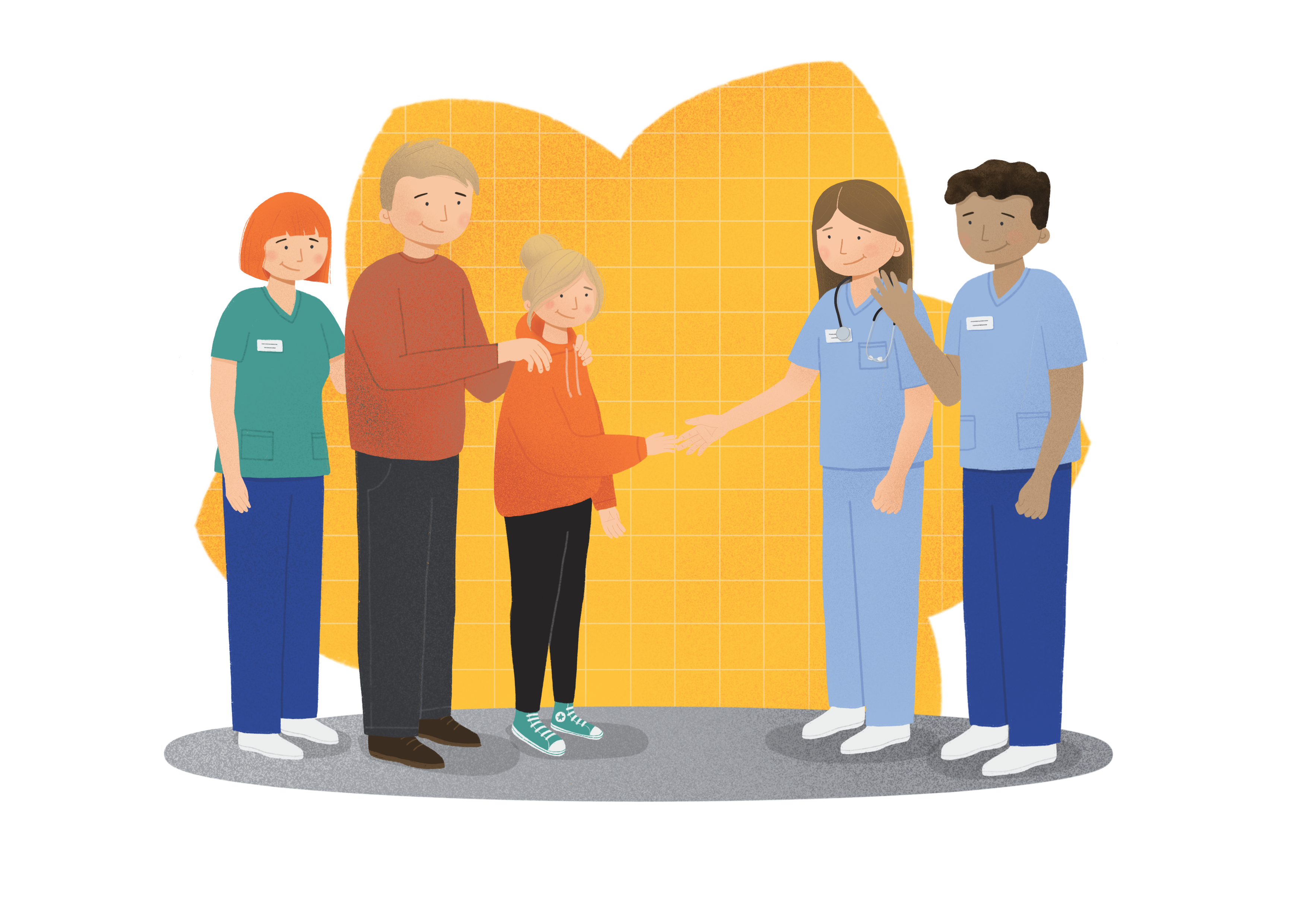Life at home during treatment

Going home from hospital
Your hospital team will organise some of the things you will need at home and let you know about your local Shared Care hospital and other supports and services in your area. They will also prepare you for any medication or care you need to give at home. You will have a plan for when your child needs to attend the hospital and/or the local shared care hospital for check-ups or treatment.
Keeping some normality
It’s good to try and keep your child’s familiar routine as much as possible. Though it’s easier said than done, try not to let the illness take over. The best gift you can give a seriously ill child is a normal, predictable environment and a loving family. In general, children feel more secure when the normal home rules continue to apply. Many parents find it helpful to ask family, friends and neighbours not to give too many gifts to their child and not to forget brothers and sisters when they’re giving gifts and attention.
Play and being with friends
If your child has been given permission from the hospital to mix with other children, then encourage them to do so. They need the company of children their own age. Your child will benefit from the give-and-take of social contact and the feeling that they are like other children. Play can boost a sick child’s morale and self-esteem.
Family outings are still important. Avoid bringing your child to very crowded areas and check with your medical team if you have any worries. If you wish to bring your child to the cinema, shops, church, avoid busy times.
If you’re child isn’t able to get out much, arrange some form of activity for them during the day. Toys, playing cards, board games, jigsaws and video games, art and books can help to pass the time. Sending texts and emailing friends will keep older children busy.
You might like to sign them up for a residential camp, such as Barretstown. This is a specially designed camp for children with serious illnesses and their families, based in Ballymore Eustace in Co Kildare. It offers a range of adventurous and challenging activities, free of charge, which are supported behind the scenes by health professionals. Ask your child’s specialist nurse or medical social worker for more details.
Staying safe
You child is likely to be more at risk of infection during their treatment. Common illnesses can make them very sick. The hospital will advise you about safety precautions such as handwashing, avoiding crowds and food safety. You can see more about preventing infection here.
Medical care at home
You may feel nervous about giving medical care to your child. For example, you may have to care for their central line, feeding tube or give chemotherapy tablets at home. You may also worry about coping with side-effects. Your medical team will give you lots of support and information before you go home, and you will have telephone numbers to call if you have any questions or worries .
Diet
It’s important that your child eats as well as possible during their treatment. Eating well can help them to cope better with their treatment, fight infection and recover after treatment.
Cancer and its treatment can make it harder for children to eat well. For example, they may feel sick, lose their appetite, find it hard to swallow or find food tastes strange. Most children with cancer will have difficulty with eating or drinking at some point. Tell your medical team if your child is having any problems – they can refer you to a dietitian, who can help you.
If you have a medical card, your local pharmacist can only dispense a week’s supply of medication from a hospital prescription. So you will need to bring the hospital prescription to your GP so that they can write a new one for you.
For more information
Phone
1800 200 700




